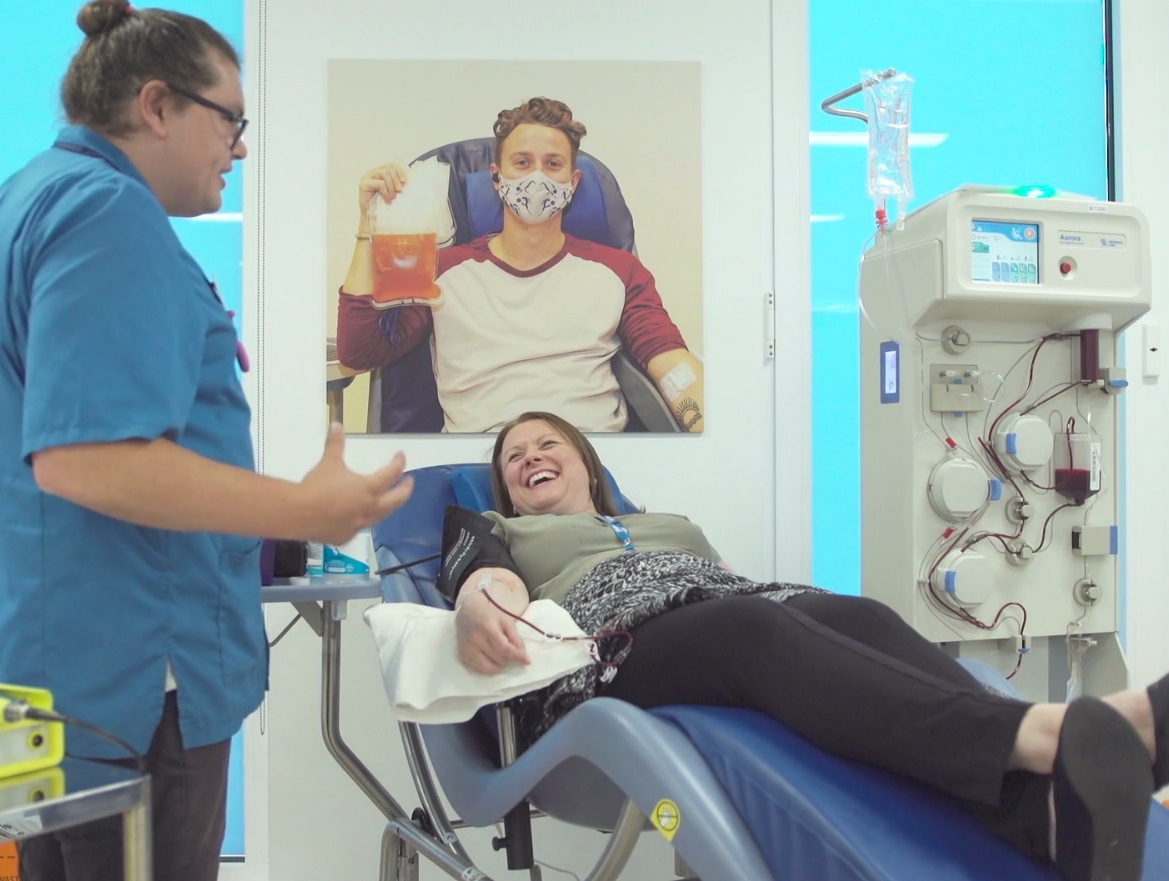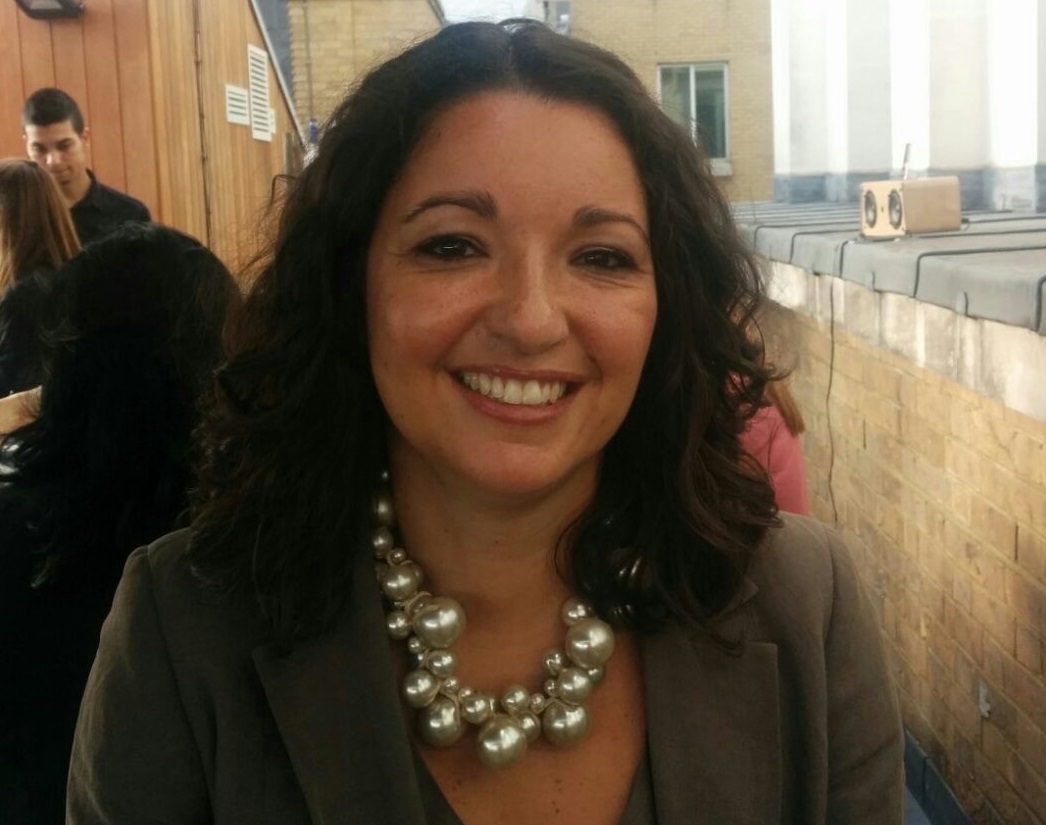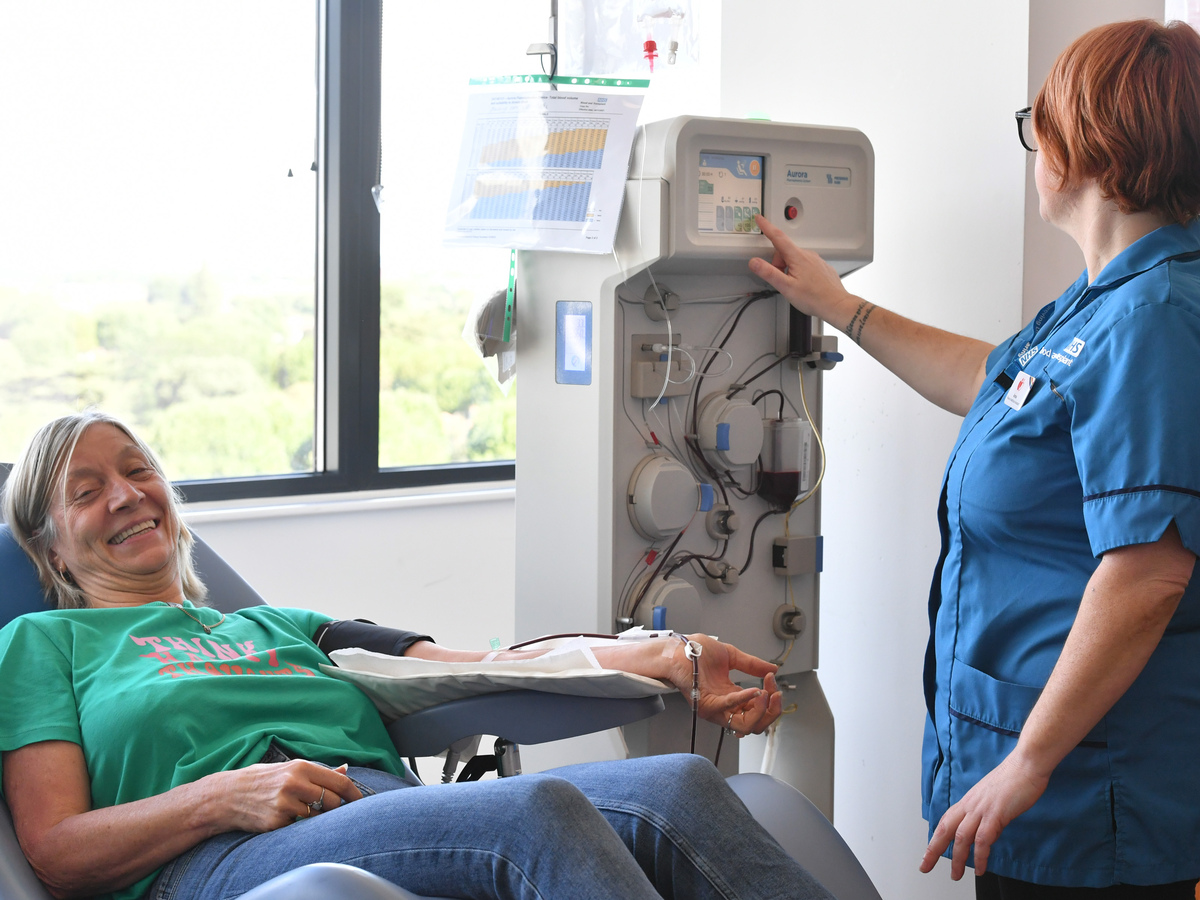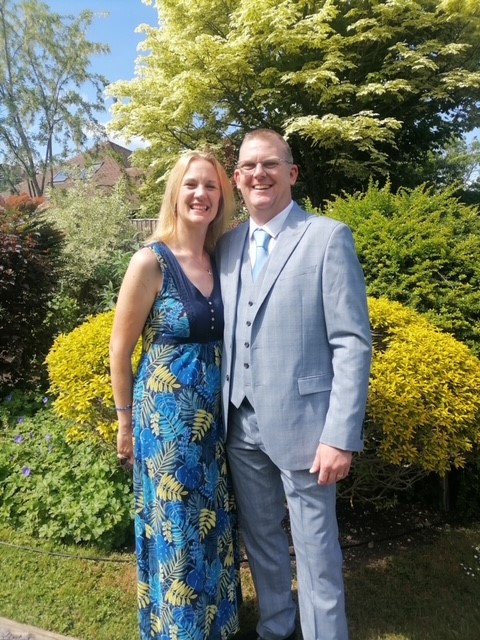New ‘female-friendly’ plasma machines will enable more lifesaving donations
Our plasma centres are upgrading to new ‘female friendly’ donor machines which will almost double the number of people who can donate lifesaving plasma.
Up until now, the number of female donors has been severely restricted. The previous donation machines operated to minimum height and weight criteria that ruled most women out. Only around 6% of the 4,600 plasma donors at the centres in Reading, Birmingham and London were female, because of the restrictions.
 However the new machines operate with new height and weight criteria, based on more up to date evidence. The majority of women can now donate plasma, which will even up the donor mix, and bolster donations of a medicine under supply pressure.
However the new machines operate with new height and weight criteria, based on more up to date evidence. The majority of women can now donate plasma, which will even up the donor mix, and bolster donations of a medicine under supply pressure.
From Monday (August 15), all of our three plasma donor centres (Reading, Birmingham and Twickenham) will be using these new machines.
The machines can take donations from women who are shorter or who weigh less. Previously, a woman of around average height at 5ft 4ins tall had to weigh 12 stone 8lbs to make a donation. Now, a woman who is 5ft 4ins tall only needs to weigh 9 stone to make a donation.
The new machines are also designed solely for plasma donation, which gives them more advantages. Donors say the new machines are more comfortable and faster, with each donation taking about 35 minutes instead of 45 minutes.
In plasma donation, blood is gradually passed through the machine, which spins out the plasma. The red blood cells are gradually returned to the donor.
The plasma will be used to make immunoglobulin, an antibody-rich medicine which strengthens or stabilises the immune system of people with rare disorders.
Each year, around 17,000 people in England are treated with immunoglobulin, for disorders such as Primary Immunodeficiency, Guillain–Barré syndrome, and autoimmune haemolytic anaemia.
England relied on imported immunoglobulin for more than 20 years as a precaution against vCJD but the Medicines and Healthcare products Regulatory Agency (MHRA) said last year that UK plasma donation can again be used for immunoglobulins.
NHS Blood and Transplant has been directed to take donations to bolster long term immunoglobulin supplies to NHS hospitals in the face of international supply pressures.
Christina Leaver, Twickenham Plasma Donor Centre manager, said: “Our new plasma donation machines are female friendly, enabling almost twice as many women to save lives by giving plasma.
“We know some women were disappointed because we had to turn them away before. Now, more people than ever can donate.
“Please register to donate plasma – you have a medicine in you which will save lives.”
Kate's story
 Kate George, 47, from Isleworth in Hounslow, said plasma medicine enabled her to have a son.
Kate George, 47, from Isleworth in Hounslow, said plasma medicine enabled her to have a son.
Her body was only making about 5% of the normal level of antibodies. She experienced years of infections and illness before she was diagnosed with Common Variable Immune Deficiency and her treatment began.
“My consultant said if I had tried to get pregnant during that period, I would probably have lost my child,” said Kate, a senior HR manager.
“And without I am not sure I would be here alive either, as I could have caught something like pneumonia.
“I can’t even put into words what immunoglobulin infusions have done for me. It’s given me my life back. It’s amazing that people donate and I am so grateful. I hope the new machines let more people than ever give plasma.”
Mandy's story
 Mandy Wilson, 55, from Erdington in Birmingham, is the female donor who has donated the most plasma at Birmingham donor centre, with 22 donations.
Mandy Wilson, 55, from Erdington in Birmingham, is the female donor who has donated the most plasma at Birmingham donor centre, with 22 donations.
Mandy, who works in admin in a hospital A&E department, said: “I’d never donated blood so I came to this a bit late in life. You can donate plasma more often than blood so now I can make up for lost time.
“Donating plasma is absolutely fine. I turn up, they give me treats like biscuits, it doesn’t hurt, and it doesn’t take long – and the technology of the new machines is fascinating.
“I think it’s fabulous that we can take donations here again. If someone in my family needed plasma medicine, I would want them to have every opportunity to have what’s needed. If I am prepared to take it, I should be prepared to give it.”
She added: “It would be lovely to have more female donors. Sometimes I say ‘gosh, there’s another lady’ when I see one at the moment. If the machines give you the opportunity, go for it. I’ve donated a couple of the times on the new machines during the trials, it was much quicker.”
Barbara's story
 Barbara Taylor – known as Bea – donates plasma after her husband Scott was treated with immunoglobulin medicine made from plasma.
Barbara Taylor – known as Bea – donates plasma after her husband Scott was treated with immunoglobulin medicine made from plasma.
Scott had immune thrombocytopenia, an autoimmune disorder. His body was destroying his own platelets, the tiny cells that help blood to clot, putting him at risk of serious internal bleeding.
He was admitted to the Royal Berkshire Hospital and treatment included intravenous infusions of immunoglobulin.
Bea, 42, a children’s worker, from west Reading, said: “I just think donating is a good way to give back. You never know when you are going to need it. The donor centre is lovely and the new machines are better.
“We never expected Scott to need treatment, it was totally out of the blue. Now I donate and you never whose life that little bag of plasma will change.”
You can register to donate plasma today.
